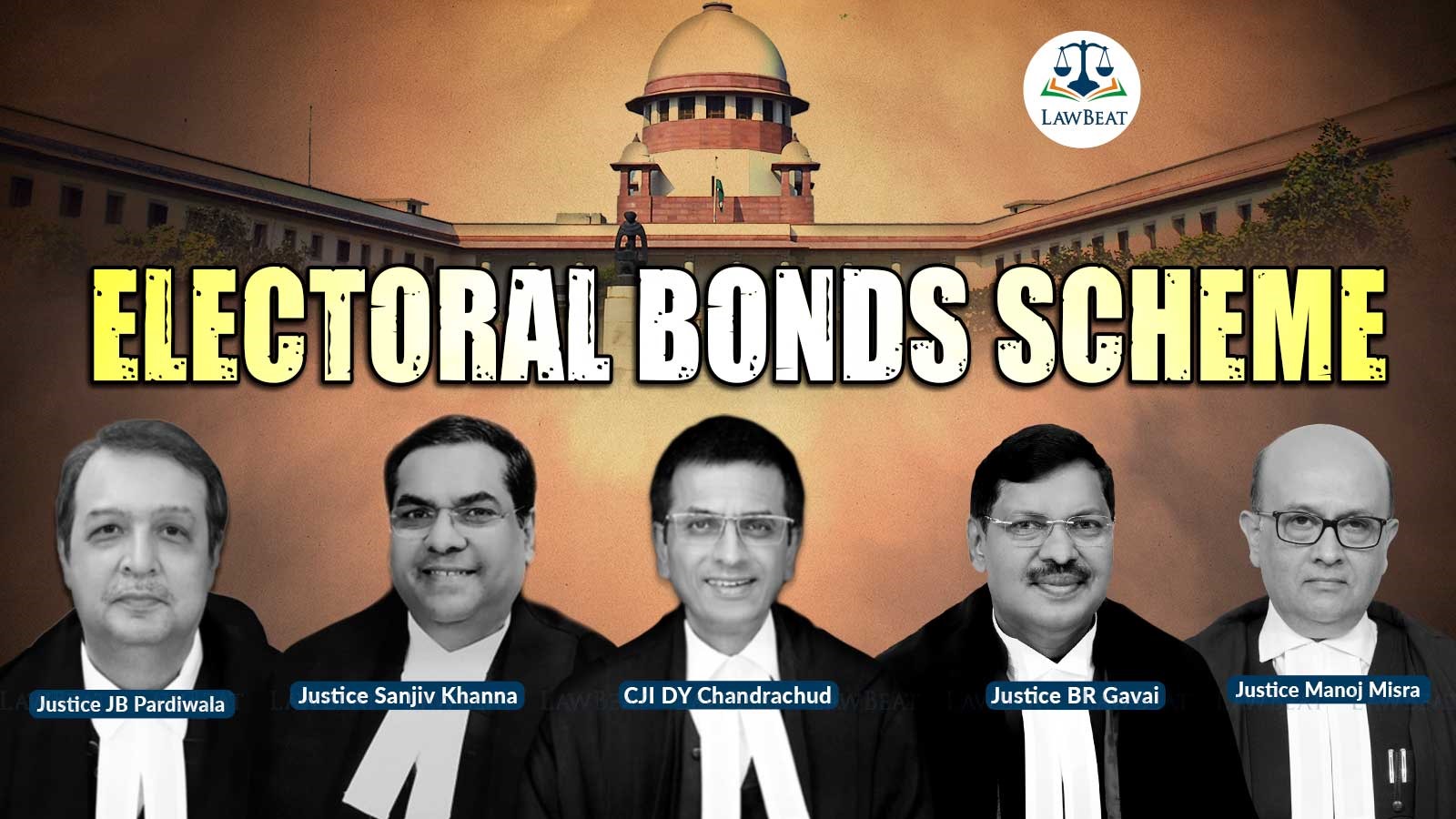BREAKING: Supreme Court holds Electoral Bonds Scheme to be unconstitutional; directs banks to stop issuing bonds

Funding to political parties must be disclosed as it curbs corruption, non-disclosure affects exercise of electoral vote, top court has said on the 2018 scheme
A CJI DY Chandrachud led bench of the Supreme Court today has held the 2018 Electoral Bonds Scheme to be unconstitutional.
"Electoral Bonds Scheme is Unconstitutional, Union of India has FAILED to establish least restrictive measures of the Electoral Bonds Scheme for political funding..", the CJI read out from his judgment today
Court has further held the scheme to be violative of Article 19(1) (a) of the Constitution of India.
Accordingly, Supreme Court has directed banks to stop issuance of Electoral Bonds. State Bank of India has been further asked to disclose information on electoral bonds issued and cashed out since the court's interim order of Aril 2019 and share with the Election Commission of India within three weeks.
CJI Chandrachud has also observed that information on funding of political parties is important for effective democracy as this could lead to a quid pro quo situation where funders are given favours through various means like policy changes etc.
The bench had reserved its verdict in the pleas challenging the 2018 Electoral Bonds Scheme in November last year.
The constitution bench had also directed the Election Commission of India to submit before it the details of funds received by all political parties through Electoral Bonds till September 30, 2023.
Government notified the Electoral Bond Scheme in 2018. According to a press release, an Electoral Bond is a bearer instrument in the nature of a Promissory Note and an interest free banking instrument. A citizen of India or a body incorporated in India will be eligible to purchase the bond. The press release further states that electoral bond would be issued/purchased for any value, in multiples of 1,000, 10,000, 1,00,000, 10,00,000 and 1,00,00,000 from the specified branches of the State Bank of India (SBI).
Solicitor General Tushar Mehta had told court that every country was grappling with the problem of black money being used in elections.
Defending the 2018 Scheme he said, "The present scheme is a conscious and deliberate attempt to ensure that A, clean money comes into the banking system to be used by political parties, and B so far as possible to eradicate unclean money in the elections."
He added that donations made through electoral bonds were kept anonymous to protect the privacy and political affiliation of the citizens who make such donations to political parties.
Supreme Court had in October 2023 notified the five-judge constitution bench constituted by comprising Chief Justice of India DY Chandrachud, Justices Sanjiv Khanna, BR Gavai, JB Pardiwala and Manoj Misra, to hear the challenge made to the 2018 Scheme.
Cause Title: Association for Democratic Reforms vs Union of India and ors | Jaya Thakur Vs UOI & other batch petitions
